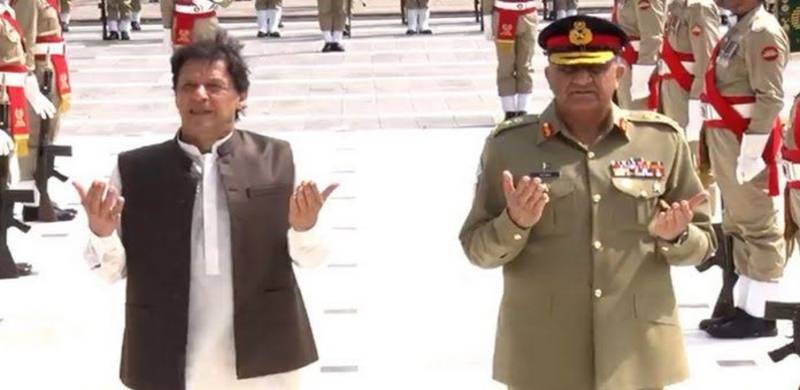
Lately there has been a series of statements coming from government ministers asserting that the military in Pakistan was never involved politics and would never be involved in politics in any capacity—in order to forcefully belie opposition leaders’ recent onslaught against military top brass, the country’s Interior Minister and Prime Minister have come out with equally forceful assertions. There have been reports in the media and statements of the government ministers that there was a lot of anger in the military rank and file about opposition leaders’ accusation that the military was indulging in politics and they stole the July 2018 parliamentary elections.
If for a moment we leave aside the assertions and accusations of opposition leaders about military stealing the parliamentary elections, there are strong practical manifestations of the military's involvement in the country's politics apart from opposition’s accusations. In our society politics is often equated with electioneering, electoral process and government formation. If defined in this narrow sense, it would be difficult to establish the military's role in Pakistani politics. But the opposition is alleging that the military and its intelligence agencies had controlled the mechanics of the electoral process this time. Broadly speaking we can sum up the military's role in the country's politics in the following three paragraphs.
The establishment has clear interests in the cultural realm of the society—it wants itself to be perceived in certain ways by the society in general and urban middle classes in particular. There are dedicated officers in key national security institutions dealing with (read controlling) the electronic and print media. In fact the interference of the establishment has become a permanent feature of newsrooms in both newspapers and news television. Production of propagandist books under the shadow of Pakistani national security establishment has been an old story in Pakistan. But recent years have seen addition of some more propagandist books on the bookshelves of Islamabad stores.
The establishment has permanent interest in ensuring a large share of financial resources of the state in annual national budget and also supplementary budgets to meet the costs of ongoing military operations against tribal militants and Punjab based militant groups. The lobbying behind closed doors in this regard has often led to political tussles in the power corridors. Reflection of this often comes to the surface when military leadership doesn’t desist from expressing its opposition to instruments of federalism such as 18th amendment and latest National Finance Commission Award, which supports smaller provinces.
All this lobbying for resources, public utterances by senior military officials to influence policy making, internal debates in power corridors about distribution of resources in the society, could easily be defined as politics. It can be argued that the establishment even in established democracies indulge in lobbying for resources. True. But in established democracies like the United States militaries indulge in lobbying on the surface and through legal mechanisms, and not as part of a secret cabal of so-called journalists and intellectuals in cloak and dagger style, which in the process undermine democratic processes.
The establishment has an open and clear understanding of its interests at the strategic and foreign policy level. The military leadership doesn’t indulge in any kind of polemics on foreign and strategic policy interests. But it is an open secret that the military does arm twisting on these questions. Its propaganda machinery maligns everyone and anyone who dares to publicly or in secret meetings dare to disagree with relations with India, relations with Afghanistan and relations with Washington. The way former Prime Minister Nawaz Sharif was publicly humiliated when he dared to receive Indian Prime Minister Modi in Lahore at his private residence is case in point. Besides, successive army chiefs in the post-Musharraf period have acted as diplomats-in-chief by visiting world capitals and holding bilateral foreign policy talks with important world leaders.
So it’s better to have a formal role for the establishment and put an end to the cloak and dagger style of its involvement in politics. We are in fact living in the aftermath of establishment’s intervention in the country's politics that started in August 2014 and has continued in one form or another since then—in this period we have jumped from one bout of instability to another. Now for the sake of much needed stability we should have a formal and on the surface role of the establishment in a country's political system. The establishment’s present role in politics is not only unsustainable; it is gradually pushing us towards a great anarchy and chaos.
